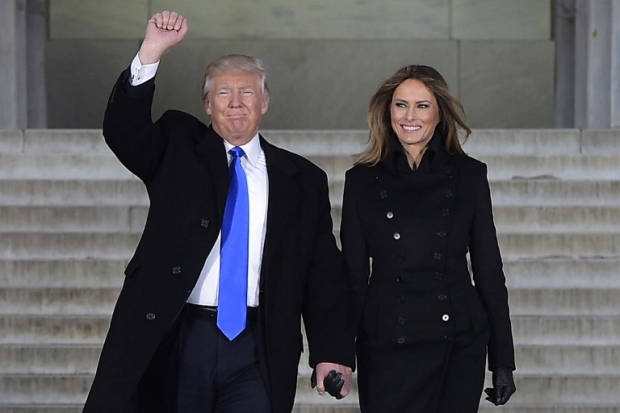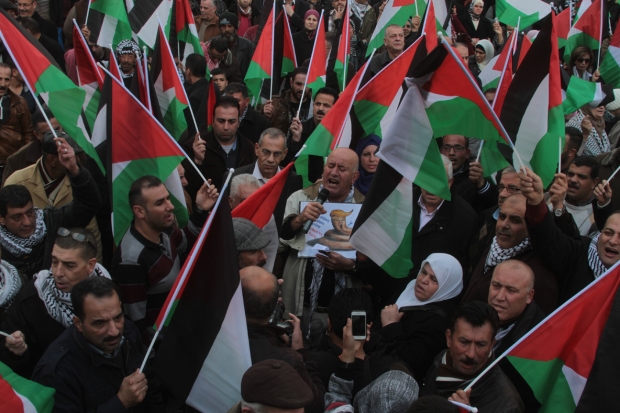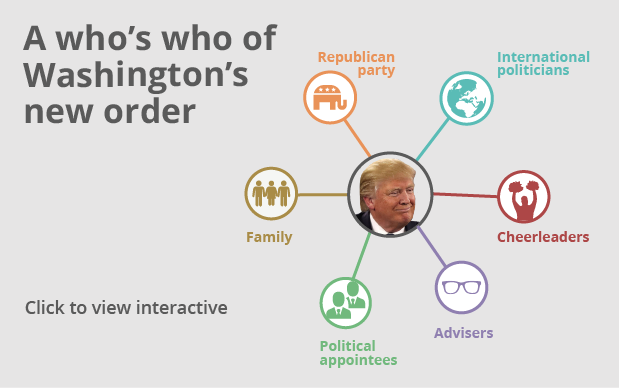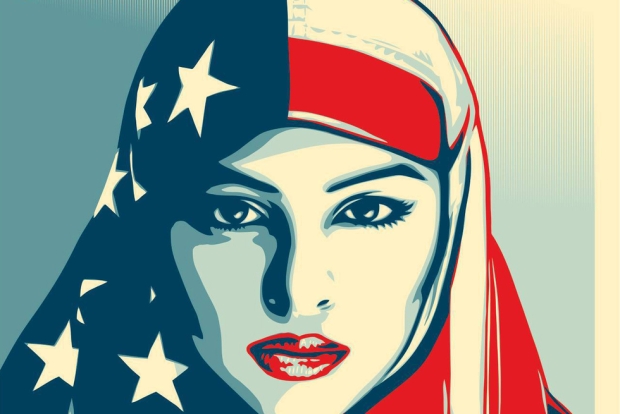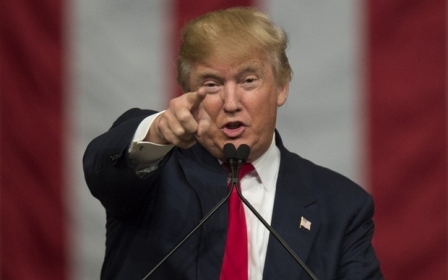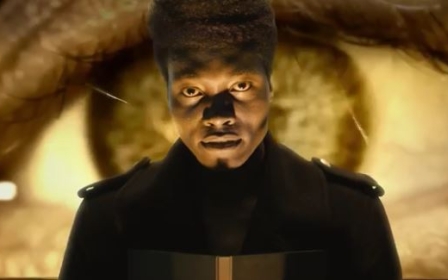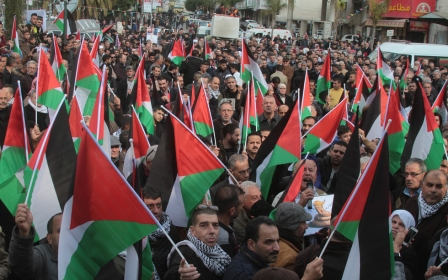Trump sworn in as US president with divided nation on edge
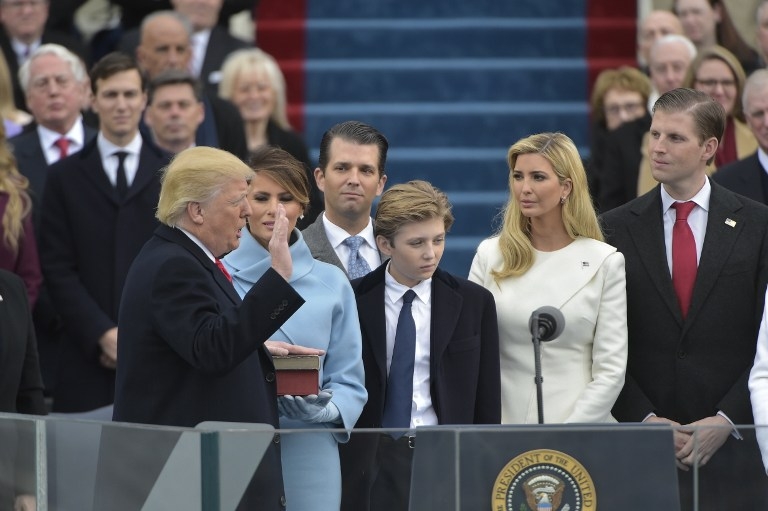
Donald Trump was sworn in as US President on Friday amid pageantry and protests in Washington DC with the country still sharply divided by an inflammatory election campaign tainted by Islamophobia, misogyny and racism, with question marks hanging over the abilities and temperament of the celebrity tycoon about to enter the White House.
Trump echoed his hard-line stance against "radical Islamic terrorism" vowing to "unite the civilised world against radical Islamic terrorism which we will eradicate completely from the face of the earth," he said during the inaugural address.
He also vowed that every US decision would be guided by a vision that puts "only America first."
"From this day forward, a new vision will govern our land. From this day forward, it's going to be only America first," he said.
"Together we will make America strong again. We will make America wealthy again. We will make America proud again. We will make America safe again. And, yes, together, we will make America great again," Trump said as he concluded his address.
While the US capital city no longer provides official crowd counts, the turnout was visibly smaller than for Barack Obama's two inaugurations, in 2009 and 2013, with sections of the Mall and bleachers along the parade route left empty.
And as the incoming leader rallied his supporters for the swearing-in, throngs of his opponents also converged on Washington.
Most of the protests - by an array of anti-racist, anti-war, feminist, LGBT, pro-immigration and marijuana legalization groups - were noisy but peaceful, though sporadic violence marred the day.
Between 400 and 500 masked, black-clad protesters carrying anarchist flags smashed windows, lit fires and scuffled with riot police in downtown Washington, blocks from the parade held in Trump's honor, with over 90 people arrested for vandalism.
Tweeting earlier on Friday Trump wrote: "The movement continues - the work begins!"
Dignitaries attending the ceremony included Obama, Trump's predecessor, and Hillary Clinton, the Democratic candidate defeated by Trump last year.
About 28,000 security personnel, miles of fencing, roadblocks, street barricades and dump trucks laden with sand formed a security cordon around eight square kilometres of central Washington.
Middle East Eye's Ali Harb and Osha al-Mossallami are currently reporting live from Washington via Facebook, where one Trump supporter asked al-Mossallami whether she was carrying a bomb:
Tim Mouring, a student Trump supporter, told MEE as he waited to enter the cordoned-off area: "He is the first president of the US who has neither been in the military or the government beforehand and that gves me confidence he is a true outsider. He is not part of any big system, he is truly independent and he wants us all to be independent."
More than 30 permits were granted for anti-Trump rallies in the US capital, while sympathy protests are also taking place in New York, Los Angeles and Boston, as well as in international cities.
An organiser for Bikers for Trump, a group that designated itself as security backup during last summer's Republican National Convention in Cleveland, said its members were ready to step in if protesters blocked access to the inauguration.
"We're going to be backing up law enforcement. We're on the same page," said Dennis Egbert.
Police and security officials pledged to guarantee protesters' constitutional rights to free speech and peaceful assembly.
On Thursday night in New York, thousands of people rallied outside Trump Tower, the headquarters of the tycoon’s business empire.
"Donald Trump may control Washington, but we control our destiny as Americans," New York's Democratic mayor Bill de Blasio said. "We don't fear the future. We think the future is bright, if the people's voices are heard."
READ: New York moves to protect immigrants from Trump
In the occupied West Bank, hundreds of Palestinians protested on Thursday over Trump’s support for moving the US embassy in Israel from Tel Aviv to Jerusalem.
READ: Palestinian protest sends message to Trump over US embassy move
Trump is expected to forge closer ties with Israel, and has said he will appoint his son-in-law Jared Kushner, an Orthodox Jew, as an Israeli-Palestinian peace envoy.
At a speech for campaign donors on Thursday night, Trump told Kushner: “If you can't produce peace in the Middle East, nobody can."
For the first time, representatives from Israel’s settler movement are among those attending Friday’s ceremonies.
“I definitely agree that we are now getting the VIP treatment, which is something that we have been working on for many years,” Oded Revivi, the leader of Yesha Council which represents more than 120 West Bank settlements told the Associated Press news agency.
Trump’s Islamophobic rhetoric during his election campaign, which included calling for Muslims to be banned from entering the US and proposing a Muslim registry, has raised concerns in American Muslim communities and among civil liberties groups.
More than 300 Muslim organisers and leaders across the United States issued an open letter to Trump last month, urging him to protect freedom of religion and revise some of his proposed policies, including creating a Muslim registry.
READ: Muslim Americans wary of what 2017 will bring with Trump
The American Civil Liberties Union promised to hold Trump accountable through the courts, noting that his policies during the campaign contradict several US constitutional amendments.
"President-elect Trump, as you assume the nation’s highest office, we urge you to reconsider and change course on certain campaign promises you have made," Anthony D Romero, ACLU executive director, wrote in an open letter to Trump following his election success.
"These include your plan to amass a deportation force to remove 11 million undocumented immigrants; ban the entry of Muslims into our country and aggressively surveil them; punish women for accessing abortion; reauthorise waterboarding and other forms of torture; and change our nation’s libel laws and restrict freedom of expression."
Analysts have described the handover of executive power from Barack Obama to Trump as “the most uncertain transition since World War II,” with the president-elect courting Russian President Vladimir Putin and reaching out to Israel even as outgoing Secretary of State John Kerry spoke out against settlement building.
Trump’s first 100 days: ‘Most uncertain transition since World War II’
“Trump says he likes to be unpredictable. He has certainly achieved that with his foreign policy, because it’s impossible to say, based on his campaign proclamations and his nominees for senior foreign policy jobs, just what he’s going to do,” Michael Mandelbaum, an academic and author of Mission Failure, told Middle East Eye.
According to Andrew Bacevich, a Boston University history scholar, inconsistency will be a hallmark of the next commander-in-chief.
“Our president will be someone unschooled in statecraft, with little patience for precedent, and buoyed by a certainty that he can intuit the solution to just about any problem – so he sees no need to listen to so-called experts,” Bacevich told MEE.
“Like it or not, Trump’s instincts will guide Trump’s decisions. Those instincts tend to focus on the concrete – gains and losses – and on the very near term. He will care about what is happening today more than what may happen next year or 10 years from now.”
Middle East Eye propose une couverture et une analyse indépendantes et incomparables du Moyen-Orient, de l’Afrique du Nord et d’autres régions du monde. Pour en savoir plus sur la reprise de ce contenu et les frais qui s’appliquent, veuillez remplir ce formulaire [en anglais]. Pour en savoir plus sur MEE, cliquez ici [en anglais].


